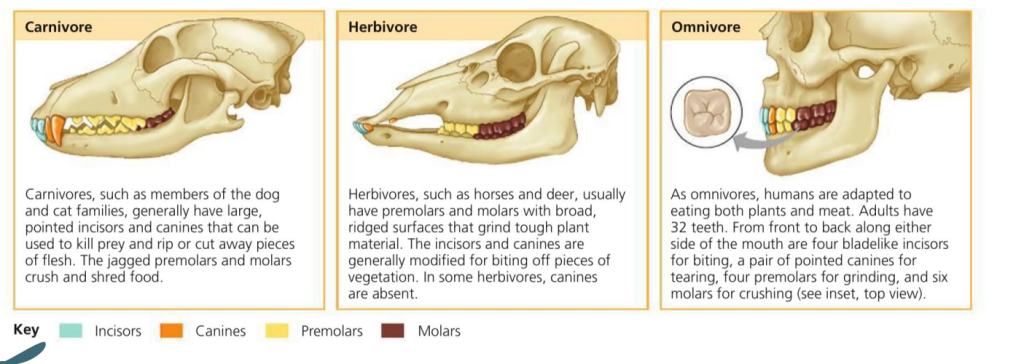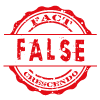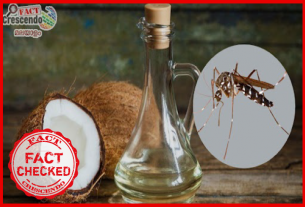දිනපතා සත්ය කරුණු දැන ගැනීමට අපගේ WhatsApp සමුහයටමෙතනින් එකතුවන්න.
Nutrition is essential for every living organism to obtain energy and nutrients for growth, maintenance, and reproduction. Organisms have diverse nutrient needs, ranging from simple nutrient absorption in single-celled organisms to complex dietary requirements in multicellular organisms.
Regarding animal nutrition, each animal species’ dietary behaviours can vary. Its evolutionary adaptations and ecological niche primarily determine an animal’s diet. These adaptations are influenced by anatomy, physiology, and behavioural factors such as dentition and digestive system, metabolic capabilities, behavioural adaptations, etc. While these factors provide general trends, there can be exceptions, and some animals may display more flexible dietary behaviours based on resource availability.
Recently, Sri Lankan social media users have shared much content about human nutrition and diet.
Social Media Posts
Recently, posts about the human diet went viral on social media based on a discussion with a famous radio station in Sri Lanka, where a claim was made that humans are carnivorous species, as seen below.
There were many posts about this statement on social media.

There were positive and negative comments on these posts by social media users.

To clarify whether this claim is valid, we fact-checked it.
Fact Check
What are herbivores, omnivores and carnivores:
Nutrition is one of the primary needs of all living beings. According to how animals fulfil their nutrition needs, all the animals in the world have been divided into three main groups.
Herbivores are animals that primarily eat plants as their food source. They can complete all their nutrient needs from plant-based materials. Carnivores predominantly eat meat. They rely entirely on animal flesh to obtain their nutrients. Omnivores are the mean of the above two types. They eat both plant and animal-derived food. They usually need both types for the proper nutrients for a healthy life. Here are more details about these three types.
Human Nutrition:
Human, Homo sapiens sapiens, is a mammal. Humans are commonly considered an animal with an omnivorous diet. But from time to time, some trends are trying to say that humans are not omnivores, but they are carnivores or herbivores. Recent posts in Sri Lanka say humans are born as carnivores, not as omnivores or herbivores.
Humans eat plant- and animal-based food materials to satisfy their need for nutrients.
Why are humans considered Omnivores:
Even with many arguments from time to time, humans are still considered omnivorous. That is not just a haphazard concept. There are many reasons and proof to show that humans are omnivorous.
The human digestive system has structural and functional characteristics that belong to both carnivores and herbivores as they need to digest both foods.
Both herbivores and humans have complex digestive systems to break down food and extract nutrients.
However, a significant difference lies in the structure of the stomach. Herbivores often have multiple stomach chambers to facilitate the breakdown of rigid plant materials, while humans have a single-chambered stomach. Carnivores and humans have similar stomachs designed to handle a diet rich in animal protein.
Herbivores and humans have longer intestines compared to carnivores. Longer intestines help to absorb maximum nutrients from the plant material. So, the herbivores have the most extended intestine, while carnivores have the shortest.
Carnivores’ digestive system is more acidic and has a pH of 1 or less. This helps them to kill the pathogens in meat. However, herbivores do not eat meat, so they have less acidity and a pH of 4 and 5. The human digestive system’s acidity is similar to that of carnivores.
Here is a research article about this.
Herbivores have prominent, broad, grinding teeth. They are molar teeth. Carnivores’ prominent teeth are sharp, ripping teeth known as canines. Humans have both kinds of these teeth.

According to these facts, humans are omnivores.
We contacted Dr. Ananda Chandrasekara, who is an expert in human nutrition.
Dr. Ananda Chandrasekara
Why Do Humans Need Dieting and Exercising?
Humans are omnivores. They need nutrition from plants and other animals to fulfill their nutrient needs.
When we talk about ancient humans, they were hunter-gatherers a long time ago. They hunt animals or grab something in their environment, such as yams, leaves, and others, and eat. They didn’t farm any food or grain. They did not get food every day. Sometimes, they didn’t get any food; the other day, they got a lot of food. This is called ‘eat and fast’. So, it was essential to store food in their bodies. People who can store more food in their bodies could survive in harsh situations than others. Individuals who easily held extra energy and had an evolutionary advantage during famines had ‘thrifty genes.’ This is called the thrifty gene hypothesis. Though it was an advantage in the early stages, by now, it has negative impacts on the human body, such as obesity and diabetes. We do not have many exercises like hunter-gatherers, and we do not suffer from long-time starvation and famines in the modern world. That is why these food storages like fat are having a more and more negative impact on us. Here is more about hunter-gatherers’ food habits.

Hunter-gatherers were hard-working, wasting a lot of calories to find their food or hunt. So, their stored fat was easily consumed for these activities. But today’s humans have developed the technology to produce their food more efficiently. Also, they have added new food items to their plate, which we could not find in ancient days. They are sugar and grains. So, modern human food habits have become more complex, and food storage levels have increased. But using the calories from stored food is less. Therefore, the food fat savings in humans become higher. This challenges human health by risking complications like obesity and diseases like diabetes.
So, to control these effects, dieting and exercising is very important to humans to minimize the food savings in their body.
But not eating plant materials is not the solution.
Why Do Humans Need Plant Nutrients?
There are two types of nutrients. They are macronutrients and micronutrients. The body needs Macronutrients on large scales, while micronutrient needs are minor. Carbohydrates, proteins, and lipids belong to macronutrients. Meat can fulfill a vast amount of these macronutrient needs. But when it comes to micronutrients such as vitamins and minerals, many of them are supplied to the body by plant materials.
The best example is the story of the discovery of vitamin C. Years ago, even before vitamins had not been discovered, sailors did not take any plant material with them while sailing as they could not preserve them for a long time. They depended on fish for their diet. But by only eating fish, they all get sick with a disease with similar symptoms. Finally, doctors could see that after giving lemon or lime to the patient, they recovered. Then, the scientists and doctors could understand that the reason for the disease is the deficiency of a nutrient that can only be found in plant materials such as lemon. This nutrient is vitamin C. The disease that the sailors were infected with was.

But here, a question may occur. If meat cannot take vitamin C, how do carnivorous animals get them? Predatory animals are also at risk of scurvy disease. However, they do not have an outside vitamin C source. That is why they have to produce vitamin C inside their bodies. Here is the process of vitamin C synthesis in carnivorous animals and most animals. Humans do not have a mechanism to synthesize vitamin C in their body. So, this proves that humans are not adapted for carnivorous diets.
So, to fulfill most micronutrients such as fiber, vitamins, and minerals, plant materials are essential.
Is It Good to Have a Carnivorous Diet for a Long Time?
In 1960, a cardiologist, Dr. Robert C. Atkins, developed a low-carbohydrate diet plan. This is known as the Atkins Diet. This was a top-rated diet plan, especially for weight loss. In this diet, people were encouraged to eat more fats and proteins. In this diet, eating some vegetables was discouraged. This was effective for weight loss.
The keto diet is also a low-carbohydrate diet, like Atkins’s, but some differences exist.
Both of these diet plans minimize the consumption of plant material. But do not restrict it. But there can be side effects from less carbohydrates, such as constipation, fatigue, headaches, muscle cramps, bad breath, and reduced athletic performance. Carbohydrates break down into glucose, the preferred energy source for the brain. Glucose supports the brain’s overall functioning. So, carbohydrates are needed for the brain as fuel. Here to read more on that.
Carnivorous diets have some side effects as they do not contain plant materials. Nutrients like vitamin C and other micronutrients should be added to this diet. Though this is effective in weight loss, it may cause heart diseases, vitamin and mineral deficiency, digestive health issues, etc.

We are exposed to many sources of diseases, such as cancers. Even direct sunlight can cause cancer in the human body with UV rays. But we have a protection shield. This shield is prepared with the nutrients that we are consuming. The nutrients that are contained in vegetables help very much in the building of this shield. If we stop adding plant materials to our plates, our protection from external disease sources will decrease.
Here, it is important to eat vegetables and fruits.
Also, there are two types of fat: saturated fat and unsaturated fat. There is saturated fat in meat, dairy products, coconut oil, palm oil, and snacks. Eating higher levels of these foods increases ‘bad’ LDL cholesterol in human blood. This can increase the risk of heart disease and strokes. But vegetables, oil, fruits (avocado), nuts, and seeds have unsaturated fat, which is healthier than saturated fat. Unsaturated fat can help lower cholesterol levels, reduce the risk of heart disease, and improve overall heart health. So, having too much meat can be dangerous. Instead of having fat from beef, having fat from plant-based material is better.
How to Maintain a Diet Plan
Diet plans can be changed according to the age, gender, status, and diseases of the person. So, more than using a standard diet plan, it is better to maintain a well-managed and organized diet plan with expert advice. When trying to follow a diet plan, selecting a plan that matches his situation is essential. Pregnant women and people with diseases should not follow standard diets. Without dieting, less knowledge is not good. It would be better if someone could consult a nutritionist or doctor for advice.
Taking a lot of carbohydrates is not very healthy. But not having carbohydrates or minimizing it too much is not the solution. A nutritional daily intake of carbs should be consumed, however. Vegetables, fruits, and leaves must be included in the meals as we are not carnivores, and plants need nutrients to fulfill.
Having meals only when one is hungry, having a well-balanced diet with meat and plant items, and avoiding unhealthy food as much as possible is essential in a healthy diet.
Follow us and stay up to date with our latest fact checks.
Facebook | Twitter |Instagram | Google News | TikTok
Conclusion
Humans are not carnivores. Humans are omnivorous animal species. But with the evolution of the change in diet patterns, humans have faced the problem of gaining weight and more stored fat with modern lifestyle. A carnivorous diet is not the solution to controlling this issue. Having a balanced diet with all the nutrients will be the best option.







